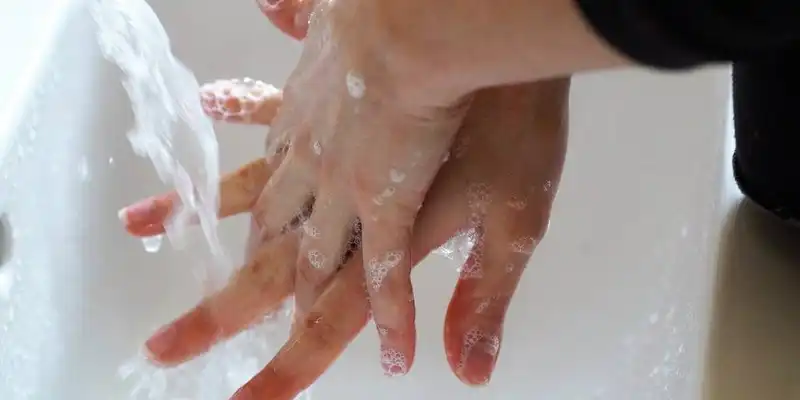A Look Into The World Of Food Hygiene
What Is Food Hygiene?
The World Health Organization (WHO) defines food hygiene as conditions and measures necessary to ensure the food is safe for consumption from the farm to your plate.
This means food hygiene is vital for farms, factories, restaurants, and your home kitchen.
Proper food hygiene measures need to be practiced in each stage of the supply chain because every person working with food can be a possible source of contamination.
In a restaurant, this includes the chef who cooks the food, the kitchen crew who preps the ingredients, and the server who serves food to the customer. The cleanliness of the cooking equipment, kitchen utensils, tables and chairs, and the entire restaurant play a part as well.
Why Is Food Hygiene Important?
Practicing proper food hygiene measures is essential for the following five reasons-
- Reduce the risk of foodborne diseases- According to the Centres for Diseases Control and Prevention (CDC), around 48 million people get sick, 128,000 are hospitalized, and 3,000 die from foodborne diseases each year. With proper food hygiene procedures in place, the number of people suffering from foodborne illnesses can be reduced.
- Contribute to healthy living- When the risks of foodborne diseases have reduced, you, your employees, and your customers get to enjoy a healthier way of life.
- Harmful microorganisms are invisible to the naked eye- Thus you wouldnt know if the food is safe to eat or not. If you practice proper food hygiene measures, your food is less likely exposed to contamination.
- Save your medical bills- You and your employees are less exposed to harmful food contamination, therefore, your medical expenses will be reduced.
- Make your food premises a safe and pleasant place to eat, which means customers will likely return for more and recommend you to their family and friends.
Personal Hygiene and Effects On Food Hygiene

The first and the most critical step to ensure a high level of food hygiene is taking care of personal hygiene.
Each person who comes into contact with food can be a source of contamination.
A kitchen crew who forgot to wash his hands after handling raw foods may transfer harmful microorganisms to cooked foods.
A server who accidentally coughed at the food she was serving may introduce harmful viruses.
A chef who didnt wear a chef hat may not realize that strands of his hair fell onto the plate, thus contaminating the food.
It is these small things that add up to poor food hygiene on your premises without you knowing.
However, there are things you can start doing today to practice proper personal hygiene in your business.
Dos-
- Wash your hands frequently. Do this after going to the toilet, before handling food, and during food preparation
- Wash and sanitize all surfaces and equipment used for food preparation
- Wear suitable, clean, and protective clothing such as hair restraints, face shields, gloves, and aprons
- Keep your fingernails short and clean
Donts-
- Avoid sneezing or coughing into hands when handling food. Instead, cover your mouth with a piece of tissue paper or cough or sneeze into your upper sleeve. Then wash your hands with soap or water
- Avoid touching hair, nose, or mouth while working with food
- Dont wipe off sweat with bare hands
- Dont come to work if youre sick. You could be spreading germs to your teammates and the food
Consequences Of Poor Food Hygiene
Your business and customers could suffer due to poor food hygiene. It is highly advisable to start practicing proper food hygiene procedures before the following consequences reach your doorstep.
Food Poisoning
At best, food poisoning can feel unpleasant. At worst, it can be deadly. Food poisoning is commonly caused by several pathogens such as salmonella, E. coli, listeria, norovirus, clostridium perfringens, and campylobacter.
For example, salmonella infection is caused by eating raw or undercooked meat, poultry, eggs, or egg products. It is also the most common pathogen that requires hospitalization for treatment.
Pest Infestation
A commercial kitchen with poor hygiene can attract mice, rats, or cockroaches. These pests can lay droppings in food, or walk on kitchen equipment surfaces, which can contaminate the food and cause food poisoning upon consumption.
Loss of Business
Businesses who didnt comply with proper food hygiene standards may lose reputation and customers.
On April 8, 2020, the FDA urged some companies to recall their enoki mushrooms because testing results showed that they might be contaminated with Listeria monocytogenes bacteria. FDA also released a public announcement not to eat any recalled and affected enoki mushrooms.
A Final Word
Each food handler should incorporate the best food hygiene practices, so they can prevent food poisoning outbreaks, contribute to healthy living, and make your food premise a safe place to eat.
The best food hygiene practice starts with taking care of your hygiene. For example, wash hands correctly and frequently, wear protective gear, and sanitize kitchen equipment before and after use.
Without proper food hygiene in place, your customers could suffer from food poisoning, pests will contaminate the food, and your business may lose reputation and customers.
Ultimately, proper food hygiene procedures are essential to the success and longevity of your business.





